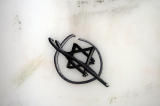
Former Prime Minister David Cameron, now serving as the new Foreign Secretary, embarked on his first official visit to Ukraine, meeting with President Volodymyr Zelensky in Kyiv.
During the meeting, Lord Cameron reaffirmed the UK's steadfast support for Ukraine, pledging ongoing moral, diplomatic, and crucially, military assistance "for however long it takes."
President Zelensky commended Cameron on his new role and expressed gratitude for the unwavering support the UK has extended to Ukraine. He emphasized the importance of solidarity, especially amidst global attention diverted elsewhere.
In a social media clip shared by Zelensky, Cameron expressed his prioritization of Ukraine for his inaugural visit, emphasizing the UK's commitment to continue offering moral, diplomatic, and economic support, particularly highlighting sustained military aid.
Cameron also acknowledged Boris Johnson's backing for Ukraine, despite personal disagreements, as one of the significant contributions by the former prime minister and his government.
Discussions between the two leaders encompassed weapons, arms production, and security in the Black Sea, as highlighted by Ukraine's foreign ministry.
Reflecting on the meeting, Lord Cameron underscored the UK's enduring support for Ukraine in resisting Russia's unlawful invasion, especially praising Ukraine's recent strides in reclaiming territories and establishing strategic positions.
The UK has been a significant provider of military aid to Ukraine since Russia's invasion in February 2022, offering substantial hardware donations, training for Ukrainian recruits on British soil, and financial support.
Cameron's visit follows Ukraine's recent advances in positioning troops across the Dnipro River in southern Ukraine, marking a notable development in countering Russian forces.
David Cameron's return to the cabinet after seven years holds significance, replacing James Cleverly, who now serves as home secretary in Rishi Sunak's revamped cabinet.
However, concerns have been raised about Cameron's return since he is no longer an elected MP and will sit as a peer, sparking debates about accountability in the House of Commons during regular departmental scrutiny sessions. Instead, questions will be fielded by ministers below him at the Foreign Office during his absence.









































